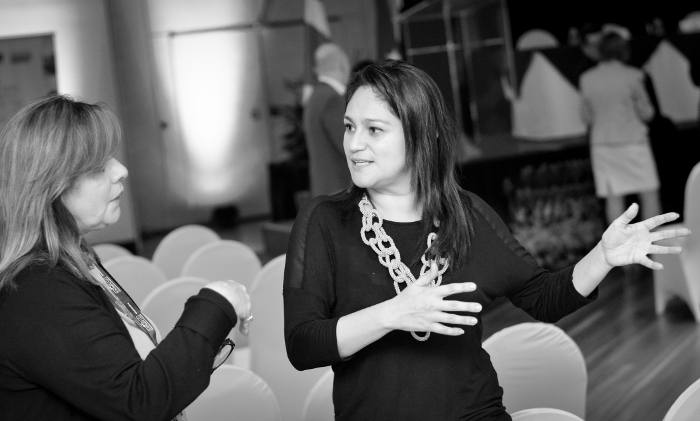-
20 September 2018
Category : Interview
“EUROCLIMA+ works in an innovative, intersectoral and multi-stakeholder environment”
Alexandra Cortés, expert in Communication and Visibility of EUROCLIMA+, tells us what the keys of the programme against climate change in Latin America are

What is EUROCLIMA+?
EUROCLIMA+ is a programme funded by the European Union offering a wide range of specialized services aimed at supporting the implementation of the commitments of the Paris Agreement in the field of climate governance, as well as the funding and technical assistance for the execution of projects with Latin American countries.
The implementation of these projects is carried out through the synergistic work of cooperation agencies of member countries of the European Union, together with two agencies of the United Nations ( UN ).
What are the objectives of the programme?
The programme seeks to promote environmentally sustainable development in 18 countries in Latin America, in particular, for the benefit of the most vulnerable populations. In addition, it supports countries in the implementation of the commitments established through the Paris Agreement on climate change.
What does each of the agencies that manage the programme do?
The spectrum of topics covered by EUROCLIMA+ includes the main development areas that are part of the climate change agenda. These issues are driven by the vast experience of the agencies implementing the programme, selected on the basis of their experience in the field of climate change, the environment and sustainable development in Latin America.
One or several agencies deal with each of the components of the programme. Therefore, the FIIAPP works on Climate Governance with the Economic Commission for Latin America ( ECLAC ), UN Environment and the German Society for International Cooperation ( GIZ ). The German agency also deals with the component of Forests, biodiversity and ecosystems, energy efficiency, together with Expertise France, for Resilient Food Production, also with the French institution, and Urban Mobility , with the French Agency for Development ( AFD ). The latter also works with the Spanish Agency for International Cooperation for Development ( AECID ) on the components of Energy Efficiency, Water Management from an Urban Perspective and Disaster Risk Management.
What does the joint work of all these institutions contribute?
The joint work of the different implementing agencies provides a broad and complementary experience in the field of climate change and sustainable development. It also promotes the exchange between Europe and Latin America, shortening distances and promoting synergies.
And the work of the FIIAPP in particular?
The FIIAPP leads the implementation of the Climate Governance component, accompanying the countries in the design, updating or implementation of climate policies. This will help Latin American countries reach 2020 with updated legislation and plans adapted to their realities.
Specifically, the Foundation facilitates dialogue on climate policies and provides technical and financial support for the development and implementation of policies, plans, measures and tools for adaptation and mitigation of climate change in Latin America. It works by directly supporting the governments of the different countries, with actions oriented at their strategic and direct demands designed jointly with the Latin American institutions within the framework of the EUROCLIMA+ programme.
According to the topics of greatest interest in the region and considering the context and the main challenges involved in facing up to climate change, the action lines of the component would be the implementation of NDCs, climate services, climate financing, education, communication and participation, and gender.
The key tools at the service of the 18 participating Latin American countries are those of collaboration between institutions, the search for synergies, joint learning and the exchange of information and best practices. To this end, the horizontal component offers both European and Latin American experiences in this area. In addition, it strengthens the capacities of Public Administration personnel, as well as other persons involved, including civil society.
What are the challenges of EUROCLIMA+?
EUROCLIMA+ works in an innovative, intersectoral and multi-stakeholder environment. The initiatives are identified and planned through participatory mechanisms. It encourages dialogue and regional exchange, ensuring that Latin American countries share best practices and lessons learned.
The programme provides services to the governments of Latin America based on their needs, seeking to promote political dialogue, knowledge management, capacity development, education and awareness of climate change. EUROCLIMA+ is driven by demand. It brings together experiences from Europe and Latin America, as well as the experience of the specialized agencies of the United Nations, it supports South-South cooperation and joint learning processes.
Given this scenario, one of the main challenges of the Programme is precisely the synergistic work with 18 countries in Latin America, a region in which many strengths and needs are shared, while at the same time presenting great differences, marked by their history, culture, politics and interaction between the nations themselves.
The views and opinions expressed in this blog are the sole responsibility of the person who write them.




